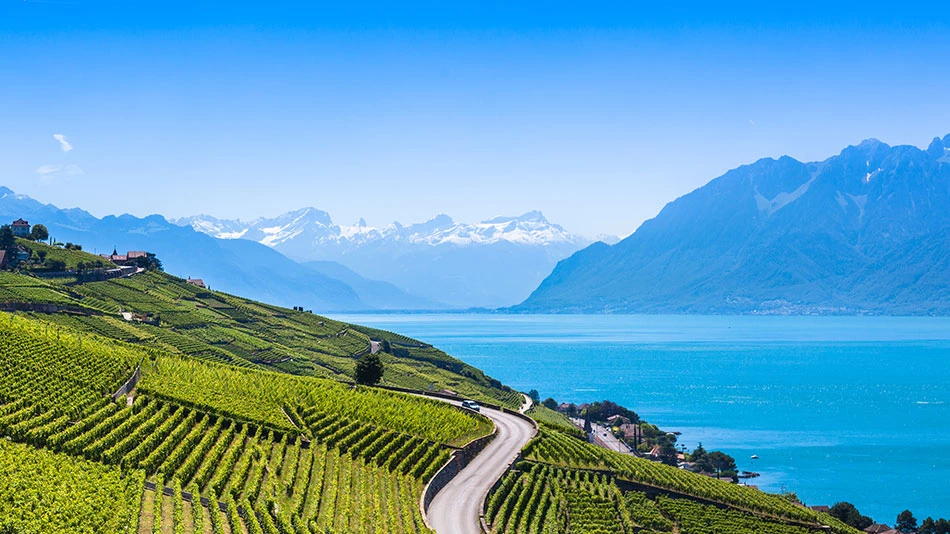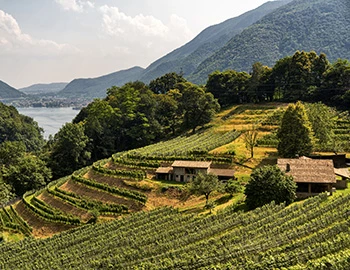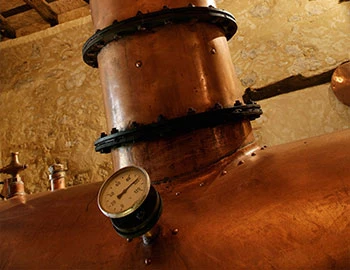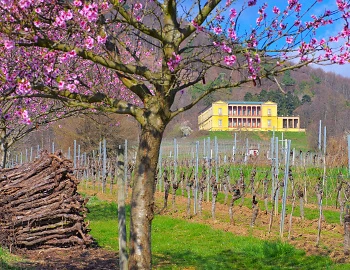Genf
Geneva: diversity at a high level
It is famous as a UN city, clock town and as a financial metropolis. However, Geneva is also increasingly recognized as a wine region. In 1988, Geneva was the first canton of Switzerland to establish a designation of origin (AOC). Since then, something almost revolutionary has occurred in the southwestern tip of Switzerland. With refreshing sparkling wines, aromatic Sauvignon Blancs, complex cuvées from Bordeaux varieties and many other specialties, Geneva vintners are demonstrating the treasure that lie in their terroir.
When in 1986, after meticulous preparation, a courageous vintner began to grow Cabernet Sauvignon in Satigny, something curious happened in the canton of Geneva. The police appeared and threatened to uproot the vines if the vintner did not do so himself. Today, Cabernet Sauvignon is a highly respected variety in Geneva, and yields well-structured, well-balanced wines after the French example. Already in 1983 – three years before the Cabernet scandal – the Hutin brothers brought some Sauvignon Blanc vines from Sancerre, planting them in Geneva. The wine surprised from the very start, with fresh gooseberry and blackcurrant fruit and a crisp character, thus paving the way for the Sauvignon Blanc boom in Switzerland which continues to this day. Such pioneering works have given Geneva vintners the image of innovative trail blazers.
Refreshing Gamay
But long-established varieties also yield highly interesting wines here. A prime example of this is the Gamay. Gamay selections from old vines, especially, can resolutely take on prestigious Beajolais crus. Gamay also plays a major role in “L’Esprit de Genève,” jointly launched by Geneva vintners, and now pressed by approximately 30 wineries according to clear guidelines. The interaction of Gamay (at least 50 percent) with other varieties, produces wines which combine freshness and complexity with a playful lightness. Geneva is among the few cantons that have established a quality-related designation of origin (AOC). For example, for a premier cru from the Chasselas variety, no more than 7,000 liters may be pressed per hectare.
A young generation is at work
It was first the Romans, and then the Dukes of Burgundy, who drove viticulture in Geneva. With a cultivation area of around 1300 hectares, today Geneva is the third-largest wine growing canton in Switzerland. The wine region is divided into three sub-regions. In the Rive Droite, with Satigny, the largest wine-growing community by area in all of Switzerland, glacial moraine soils dominate. Between the Arve and Rhône rivers, fertile, flat land stretches to the French border. Here, livestock, vegetable and grape cultivation alternate. From the mostly gravel and limestone soils, a whole series of premium wines have sprung up in recent years. In the Rive Gauche (Hermance, Anières, etc.) on the French side of the lake, a highly-motivated generation of vintners is at work. First-class Pinots and Chardonnays grow here in medium-heavy soils. Annual precipitation here, at around 850 millimeters per year, is ideal for viticulture.




